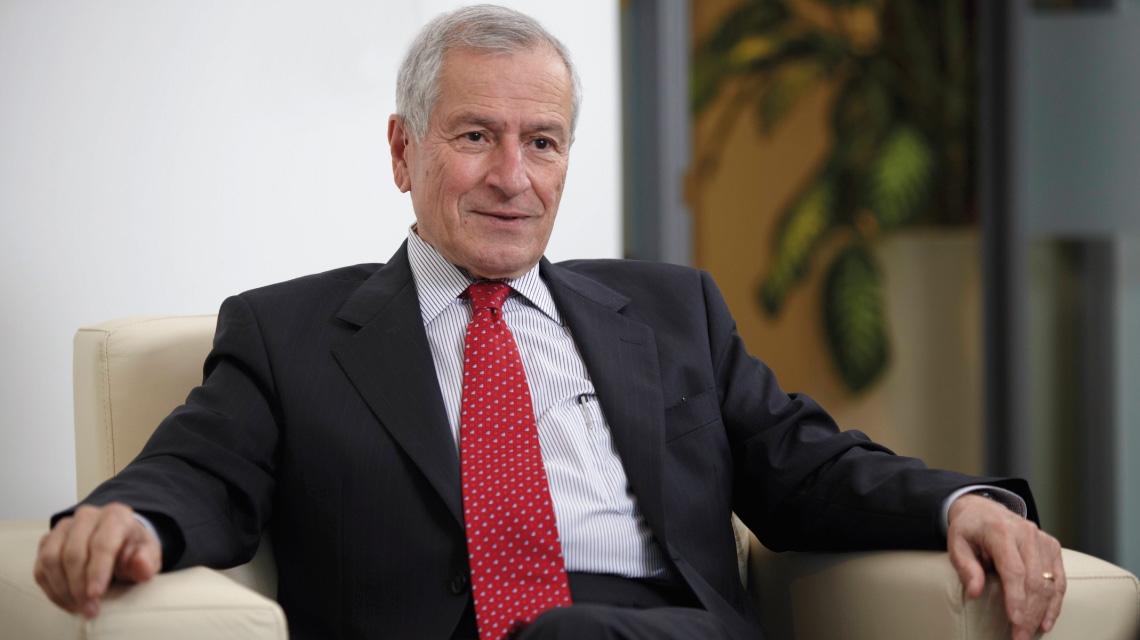
Abu Dhabi-UAE: 12 April, 2015 – The Masdar Institute of Science and Technology, an independent, research-driven graduate-level university focused on advanced energy and sustainable technologies, today announced it will present innovative water and desalination technologies at the World Water Forum 2015 in South Korea.
The 7th World Water Forum, set to serve as a crucial platform to explore conclusive outcomes for tackling emerging challenges in water security, will be held on 12-17 April 2015 in the South Korean cities of Daegu and Gyeongbuk. Managed by the World Water Council, the largest international conference on water held triennially since its inception in 1997, the event brings together industry experts from the public, private sectors, academia and industries to facilitate international discussions on global water challenges.
Dr. Fred Moavenzadeh, President, Masdar Institute, said, “Water is a shared resource and water security is a shared challenge. That is why water has been one of Masdar Institute’s key focus areas since inception, with diverse research looking to address challenges in desalination, water treatment, preservation and monitoring. Through Masdar Institute’s participation in the World Water Forum in South Korea, we hope to advance the dialogue and collaborations that are working to solve the many challenges related to water.”
Masdar Institute’s iWater research center remains at the forefront of research and innovation in water technologies in the region, driving efforts towards water security and water management. Researchers at Masdar Institute have succeeded in developing a new water desalination membrane that can be cleaned more efficiently using nanotechnology. The membrane is coated with carbon nanostructures so that the membrane can be cleaned without stopping operations through the application of a low voltage that generates gases at the membrane surface to clear unwanted surface deposits.
Another research project using nanotechnology in the water arena is led by a Masdar Institute student. It uses carbon nanotubes and graphene as part of a lower power capacitive deionization system to produce clean water. The two technologies are expected to have far-reaching implications in preserving water – a resource of strategic importance to the UAE.
Two faculty members and two students from Masdar Institute will highlight the latest research in water technology and modeling of climate variability and change in the UAE e at the forum. Dr. Taha B.M.J. Ouarda, Professor and Head of the Institute Center for Water and Environment (iWater), and Dr. Hassan Arafat, Associate Professor of Water and Environmental Engineering, will be joined at the forum by students Safa Al Sadi and Faisal Al-Marzooqi. Dr Ouarda will deliver a presentation titled “Adaptation to Climate Variability and Change for a Sustainable Management of Water Resource – UAE Experience,” which will be followed by a Q&A session.
Masdar Institute continues to make significant contributions to developing new technologies in desalination and water-related areas. In January 2015, the research-based institution announced a collaboration project with Masdar, GDF Suez subsidiary Laborelec, and Suez Environment subsidiary Degrémont for the development of a completely solar-powered, full-scale seawater reverse osmosis (SWRO) desalination plant in the UAE. Other research projects cover water scarcity and security, water and environment technologies, and water issues related to achieving sustainable marine and coastal environment.
Other UAE representatives at the World Water Forum will include representatives from the Ministry of Foreign Affairs, Ministry of Energy, Ministry of Environment & Water, Federal Electricity & Water Authority, Executive Affairs Authority, National Centre of Meteorology & Seismology, Abu Dhabi Renewable Energy Company Masdar, Environment Agency of Abu Dhabi, Dubai Electricity & Water Authority, Abu Dhabi Water & Electricity Authority, Abu Dhabi Sewerage Services Company, Sharjah Electricity & Water Authority, and the United Arab Emirates University.
Representatives from UAE government authorities are expected to utilize the forum to highlight the country’s growing efforts to reduce water consumption, costs and waste to ensure a water-secure future in what is considered one of the most arid countries of the world.